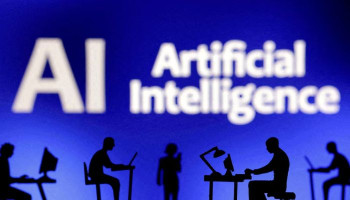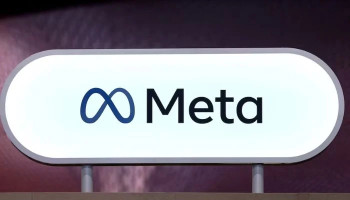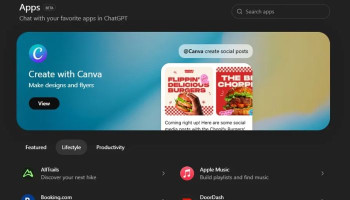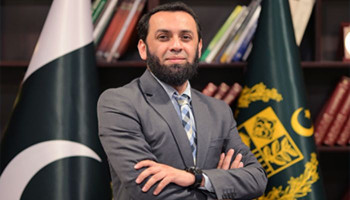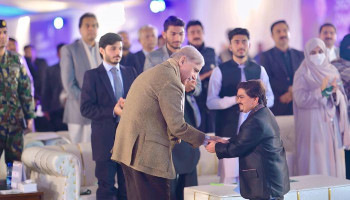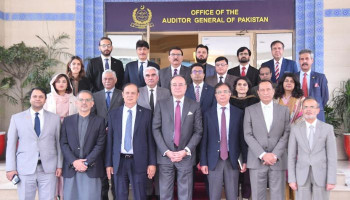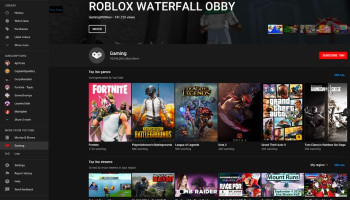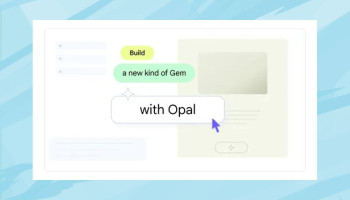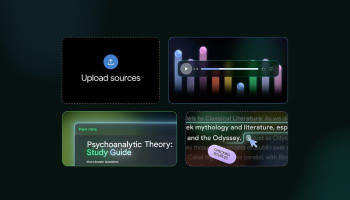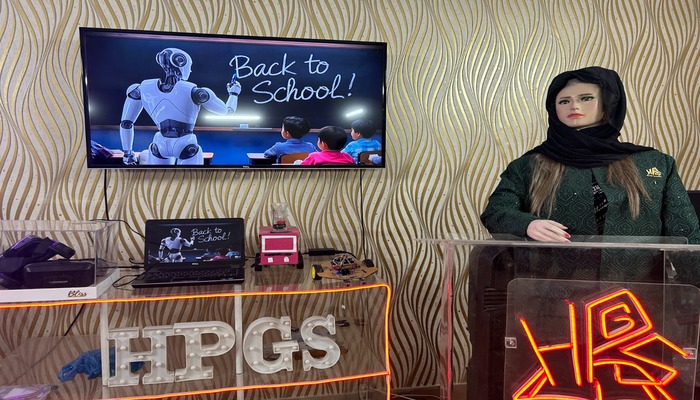
Pakistan's education sector is undergoing a significant technological transformation, driven by the integration of artificial intelligence (AI) into classrooms. This shift is redefining the learning and teaching experience, combining technology and education to create more dynamic, personalised, and inclusive learning environments.
By addressing challenges such as overcrowded classrooms, language barriers, and resource limitations, AI is changing the way students learn while enabling teachers to focus on meaningful engagement.
This development signifies a pivotal shift towards a future where technology and education harmoniously shape a smarter, better-connected generation. At the forefront of this change is Karachi's Happy Palace Grammar School (HPGS), where the traditional tools of learning — textbooks and whiteboards — are being replaced by an AI-powered teaching assistant, Miss Anny, the country's first AI employee in the education sector.
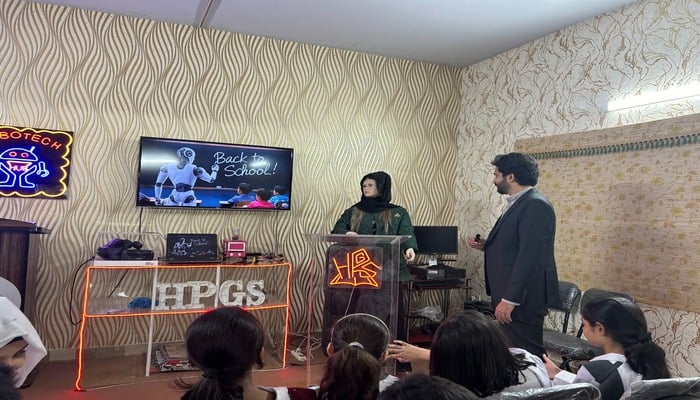
Introducing Miss Anny: A pathbreaking project
Miss Anny represents a groundbreaking advancement in Pakistan's education landscape, showcasing what AI can achieve in a classroom. HPGS Managing Director Hassan Khan explained: “Miss Anny is essentially a robot trained on large language models and extensive datasets. It can respond to student queries in natural language, making it a valuable classroom assistant.”
This innovative project sets a new benchmark, positioning AI as a practical solution to current challenges rather than a luxury of the future.
A new kind of teaching assistant
The robot is powered by advanced AI technology and works alongside teachers to enhance and support the learning process. While it doesn’t replace human educators, it serves as a smart assistant capable of delivering lessons across a wide range of subjects, including chemistry, physics, general knowledge, and even health tips.
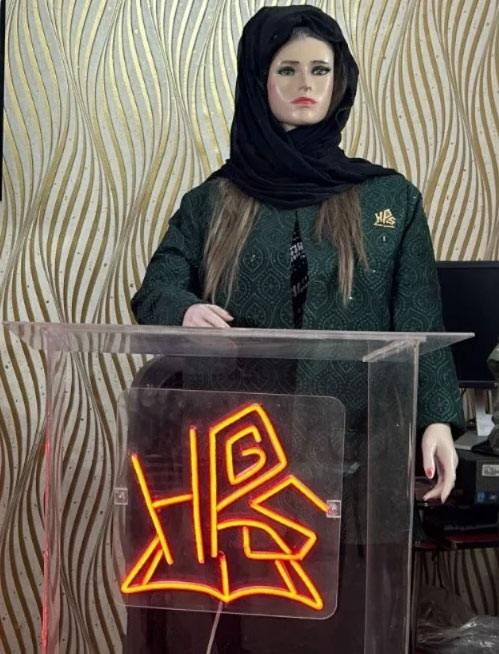
Vice Principal and creator of Miss Anny, Sadaf, shared the vision behind the initiative: "Miss Anny was introduced to revolutionise the education sector in Pakistan. We saw how technology is transforming different industries worldwide, with robots and AI already being used in restaurants, offices, and more. We wondered why the education sector was lagging behind, especially when Pakistan has talented students and educators."
Miss Anny delivers five lessons daily, engaging students in interactive learning sessions for up to five hours. In addition to academics, it provides health tips, counselling, and professional guidance for teachers, making it an integral part of the school’s ecosystem.
Multilingual capability and local adaptation
One of Miss Anny’s standout features is its ability to communicate in over 20 languages, including Urdu, Sindhi, Punjabi, English, French, and German. This capability ensures that language barriers do not hinder learning.
Highlighting the AI's adaptability, Sadaf remarked: "Miss Anny teaches all subjects to students, including chemistry, physics, and general knowledge. She also provides counselling and guidance to teachers, making her an integral part of the school’s ecosystem."
Thoughtful design for young learners
Miss Anny’s design reflects a deep understanding of the needs of young learners, Anny's co-creator Hasaan Zafar Siddiqui said, adding the reasoning behind the robot's female persona is that interaction with male teachers is often limited and they wanted a model that could closely align with the nurturing approach expected in primary education.
Next steps: Integration of AR and VR
The initiative has triggered a debate about the role of AI in the country's education sector while the school management has started preparations for the launch of Miss Anny 2.0, promising more advanced features like augmented reality (AR) and virtual reality (VR) to enhance its functionality and engagement.
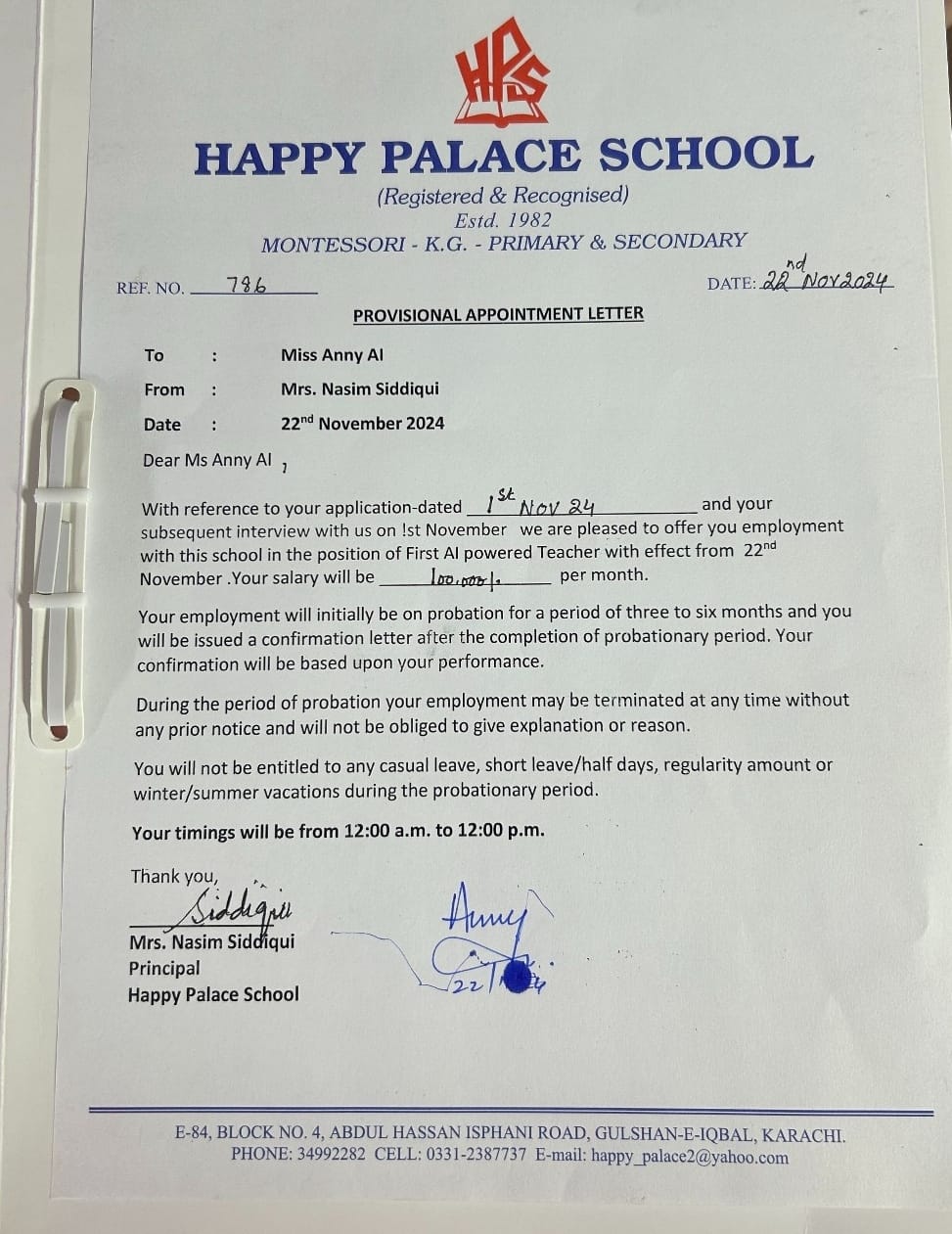
For long-term success, Sadaf emphasised the need for collaboration between the public and private sectors: "The government must also propel activities of this kind, particularly in the education sector."
Addressing concerns regarding the unemployment of teachers, Hasaan clarified that Miss Anny is not a replacement for teachers but an assistant.
Hasaan clarified Miss Anny's role in classrooms: “Miss Anny is not a replacement for teachers but an assistant. She helps conduct classes, gives lectures in the absence of a teacher, and answers questions, but always with the teacher's guidance and oversight.”
Next steps: Integration of AR and VR
Looking ahead, the team is working on integrating augmented reality (AR) and virtual reality (VR) into Miss Anny’s capabilities. Hassan explained: "We are working towards the integration of AR and VR capabilities into Miss Anny's 2.0 version to further enhance its functionality and engagement."
A turning point for education in Pakistan
The introduction of Miss Anny at the Happy Palace Isphani Campus marks a turning point for Pakistan's education sector. By demonstrating how AI can address real-world challenges, this project offers a blueprint for how technology can transform education. As Sadaf aptly concluded: "We strongly believe in the potential of AI in education, and we hope that it will soon be adopted by schools across Karachi."
Miss Anny is a testament to the power of innovation in overcoming challenges and redefining the possibilities of education in Pakistan, paving the way for a smarter, more inclusive future.





